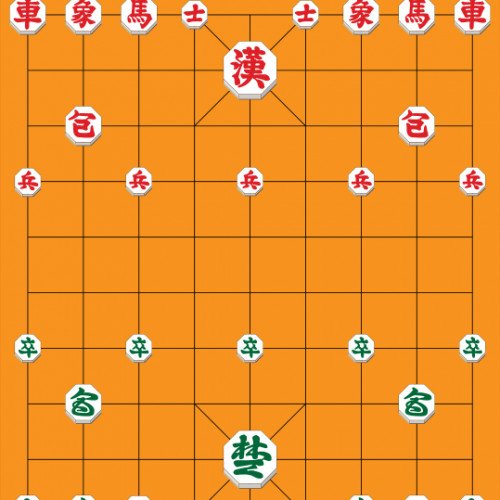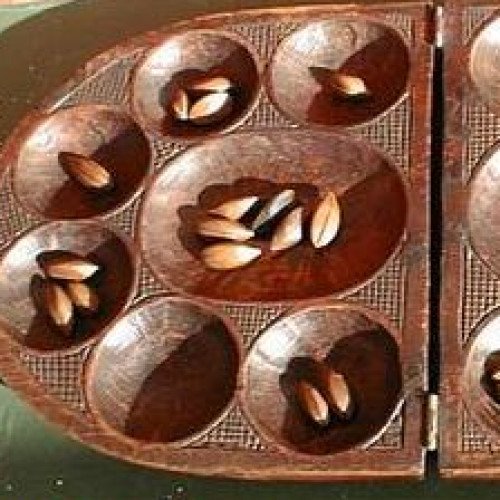JANGGI VS OWARE

JANGGI
Janggi (including romanizations changgi and jangki), sometimes called Korean chess, is a strategy board game popular in Korea. The game was derived from xiangqi (Chinese chess) of China and is very similar to it, including the starting position of the pieces, and the 9×10 gameboard, but without the xiangqi "river" dividing the board horizontally in the middle. Janggi is played on a board nine lines wide by ten lines long. The game is sometimes fast paced due to the jumping cannons and the long-range elephants, but professional games most often last over 150 moves and so are typically slower than those of Western chess. In 2009, the first world janggi tournament was held in Harbin, Heilongjiang China. The board is composed of 90 intersections of 9 vertical files and 10 horizontal rows. The board has nearly the same layout as that used in xiangqi, except the janggi board has no "river" in the central row. The pieces consist of disks marked with identifying characters and are placed on the line intersections (as in xiangqi and Go in China). Janggi pieces are traditionally octagonal in shape, and differ in size according to their rank. The sides are Blue (or sometimes Green), which moves first, versus Red. Each side has a palace that is 3 lines by 3 lines (9 positions) in the centre of their side of the board against the back edge. The palace contains four diagonal lines extending outwards from the centre, forming an "X" shape.
Statistics for this Xoptio

OWARE
Oware is an abstract strategy game among the Mancala family of board games (pit and pebble games) played worldwide with slight variations as to the layout of the game, number of players and strategy of play. Its origin is uncertain but it is widely believed to be of Ashanti origin. Played in the Bono Region, Bono East Region, Ahafo Region, Central Region, Western Region, Eastern Region, Ashanti Region of Ghana and throughout the Caribbean, Oware and its variants have many names - Ayò, Ayoayo (Yoruba), Awalé (Ivory Coast, Benin), Wari (Mali), Ouri, Ouril or Uril (Cape Verde), Warri (Caribbean) Pallanguzhi (India) Wali (Dagbani), Adji (Ewe), Nchọ/Ókwè (Igbo), ise (Edo), Awale in (Ga) meaning Spoons in English according to the Ga name for the game. A common name in English is Awari but one of the earliest Western scholars to study the game, Robert Sutherland Rattray, used the name Wari. The game requires an oware board and 48 seeds. A typical oware board has two straight rows of six pits, called "houses", and optionally one large "score" house at either end. Each player controls the six houses on their side of the board, and the score house on their end. The game begins with four seeds in each of the twelve smaller houses. Boards may be elaborately carved or simple and functional; they may include a pedestal, or be hinged to fold lengthwise or crosswise and latch for portability and storage with the seeds inside. While most commonly located at either end, scoring houses may be placed elsewhere, and the rows need not be straight. When a board has a hinged cover like a diptych, the scoring houses may be carved into the two halves of the cover, and so be in front of the players during play. The ground may also be used as a board; players simply scoop two rows of pits out of the earth. In the Caribbean, the seeds are typically nickernuts, which are smooth and shiny. Beads and pebbles are also sometimes used. In the West, some cheaper sets use oval-shaped marbles. Some tourist sets use cowrie shells. The game starts with four seeds in each house. The objective of the game is to capture more seeds than one's opponent. Since the game has only 48 seeds, capturing 25 is sufficient to win the game. Since there is an even number of seeds, it is possible for the game to end in a draw, where each player has captured 24.